
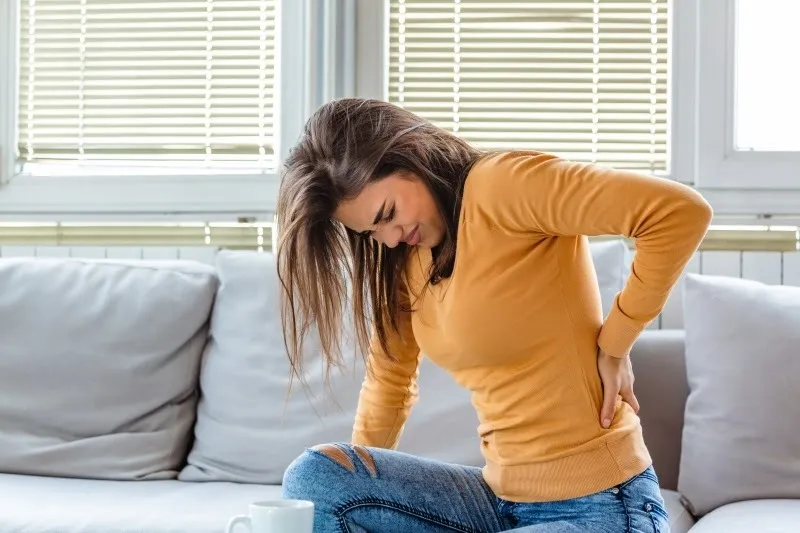
If you suffer with lower back pain or muscle pain, recovery yoga is exactly what you need. Yoga is a mind-body practice that's often recommended to treat both stress and body pain, using specific poses to strengthen and relax the body. When you practice yoga, you become more attuned to what's going on in your body and will be better equipped to notice where your body holds onto stress and tension, or where you're experiencing pain and discomfort. Then, you can use yoga to treat those issues.
Using yoga for lower back pain or yoga for muscle pain is nothing new, but still many believe that yoga is only about flexibility. Specifically, many believe that in order to practice yoga effectively you have to already be flexible and capable of bending yourself into knots.
Fortunately, we're here to let you know that yoga is for every body (not just the bendy ones) and if you're experiencing lower back pain or muscle pain, yoga may be just what you need for recovery. And, you don't have to just take our word for it—we have the research to back it up.
Yoga has been practiced for thousands of years as meditation, moving meditation, and, more recently, strictly for exercise. Among the many mental and physical benefits of yoga, certain yoga poses have been found to improve moderate to severe back pain.
In a small study from 2017, published in the Annals of Internal Medicine, researchers looked at the effects of a yoga practice or physical therapy in participants with chronic back pain over the course of a year. Both groups showed improvements in pain and activity and both groups were less likely to continue using paid medications after three months.
Another study from 2017, published in the same journal, found that yoga practitioners showed small to moderate decreases in pain intensity over the short term. Not only that, but those who practiced yoga also enjoyed a slight increase in both short- and long-term function.
The American College of Physicians also released clinical guidelines recommending yoga as a non-drug option to treat chronic low back pain. Other non-drug options included tai chi, multidisciplinary rehabilitation, and other relaxation and stress-reduction techniques.
Yet another study published by the Journal of Alternative and Complementary Medicine found that Hatha yoga helped relieve back pain.
In addition to the benefits yoga has for sufferers of low back pain, you can also use yoga for muscle pain recovery.
Muscle pain can be caused by just about anything: nerves and joints, excessive stretching, certain medicines, and even dehydration can send you crawling for an ice pack. Before freezing those sore muscles, though, we recommend trying yoga.
Certain yoga poses help stretch the superficial muscle tissues in your hamstrings and connective tissues. This means that doing yoga can not only help with recovery but can also get your body ready for your workout (and minimize the likelihood of getting injured from that workout).
For weightlifters, yoga can be one of the best things to add to your regimen. Practicing yoga will help relax the shortening of your muscles that happens naturally during weightlifting, helping you stretch your muscle to its normal state without losing the impact of your weightlifting.
Here are four of our favorite yoga poses to ease low back and muscle pain. Hold the poses for at least 90 seconds each, unless noted. It generally takes about that long for your muscle to relax into a stretch. These four recovery yoga poses will help you find relief from low back and muscle pain.
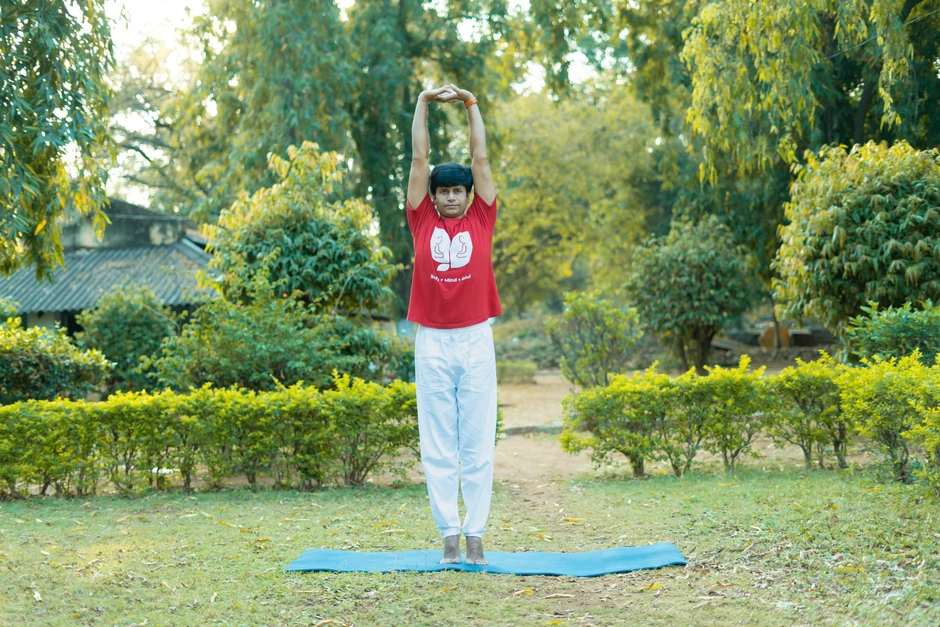
Mountain pose (Tadasana) is a great pose to alleviate chronic low back pain, reduce rotator cuff discomfort, and decrease headaches or migraines. Standing or sitting in a hyper-erect posture all day is not only unrealistic, but can also exacerbate existing back and muscle issues. Performing mountain poses a few times over the course of the day, though, can help you slowly and naturally create the muscular structure and mental awareness needed to shift your regular posture to something a bit more upright.
To do mountain pose, stand tall on your yoga mat or the floor with your feet either together or hip-distance apart with your arms at your sides. Keep your legs straight without locking out your knees and distribute your body weight evenly across your feet. Keep your thigh muscles tight and tuck your tailbone in.
Take a deep breath in while lifting through your body from the waist, pushing the top of your head toward the ceiling. You'll feel your spine straighten and lengthen and may even get a few gratifying "pops" from your back for your efforts.
On the exhale, drop your shoulders downward and reaching your hands towards the floor. On the next inhale, raise your arms out to the side and over your head with your palms facing one another. Hold this position for a few breaths before exhaling your arms down by your sides.
Ready to kiss back pain goodbye? Sign up for a two-week free trial of our Yoga for Back Pain program where you’ll get three free one-on-one sessions as well as group classes that focus on yoga for back pain and core strengthening. Plus, access to 30+ other daily yoga classes!
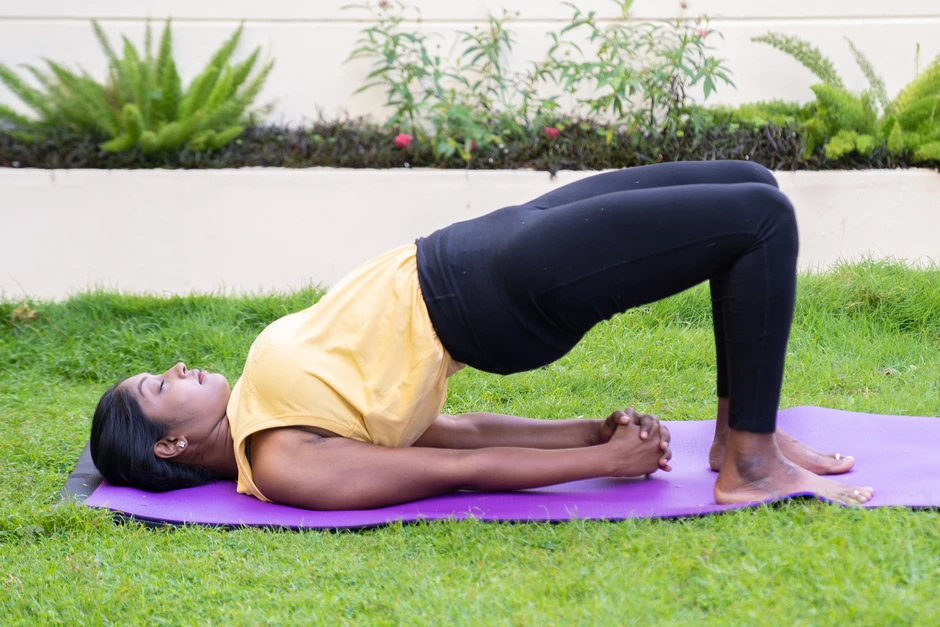
Bridge pose (Setu Bandha Sarvangasana) is a backbend and inversion that stretches the spine and can relieve both backaches and headaches. This pose can be either restorative or stimulation and works the hamstrings, erector spinae, rectus and transverse abdominis, and gluteus muscles. You'll do three rounds of this pose, holding for at least 30 seconds each time.
From a supine position with your knees bent and feet flat on the floor and hip-width apart. Place your arms down along your sides, pressing your palms into the mat. On the inhale, lift your hips off the floor and up into the ceiling, tucking your sacrum and relaxing your glutes. Keep your weight distributed evenly across both feet.
Hold the pose for 30 seconds, finding space in your upper chest before slowly lowering your hips to the floor. On the way down, roll through each vertebra. Repeat twice more.
_optimized.webp)
Cat-cow pose (Bitilasana Marjaryasana) is a brilliant recovery yoga pose for those of us who sit at a desk much of the day. This pose can lengthen the spine and neck to reduce compression of the vertebrae, alleviate chronic low back problems, headaches, and shoulder tension, improve organ function, and even help with chest congestion. You go through cat-cow for five rounds.
Start from a tabletop position with your hands directly under your shoulders and your knees under your hips. On the inhale, drop your stomach and lift your chest, pushing your heart forward and looking up for cow pose. On the exhale, round your spine while pulling your stomach in and stretching across your back, gazing towards your knees for cat pose. Continue for four more rounds, inhaling for cow and exhaling for cat.
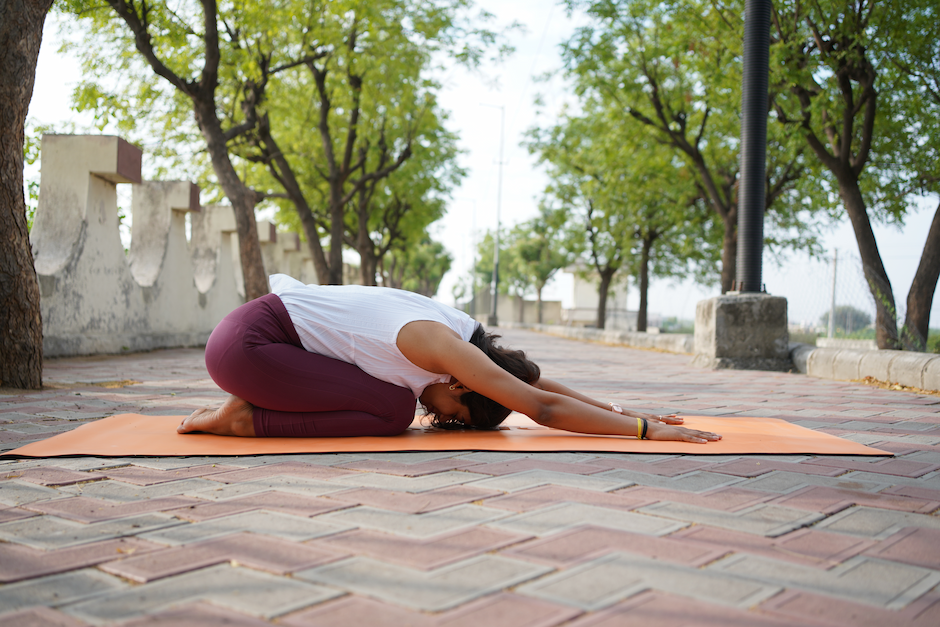
Child's pose (Balasana) is a gentle pose that will help you relax and release any tension you're holding in your neck and back. In this pose, your spine will stretch and lengthen along with your ankles, hips, and thighs. Child's pose works your hamstrings, rotator cuff muscles, gluteus maximus, and spinal extensors.
To go into child's pose, kneel on your mat, sitting on your heels. Spread your knees apart to hip distance while keeping your big toes touching each other. Your arms will rest by your sides. On the inhale, lengthen your spine. On the exhale, bend forward and extend both arms forward, resting your torso on your thighs and resting your palms on the floor.
When you're dealing with low back pain and muscle pain, listen to your body. If a pose doesn't feel good, modify it or just don't do it at all. Your yoga practice is yours and should make you feel great, not cause you pain or stress.
We recommend skipping poses that combine bending and twisting movements or backward bends if you have back pain. This would be poses like triangle, any spinal twists, camel, and cobra, among others. For corpse pose, try keeping your knees bent and feet on the floor or put a bolster under your knees to avoid causing low back pain (or making it worse).
While yoga for low back pain and yoga for muscle pain are supported by research, it's important to remember that your body is unique to you. Listen to it. Start easy if you're experiencing pain, just 10 minutes (or even less) per day can make a huge difference.
As always, we at myYogaTeacher are here for you. We offer one-on-one instruction and group classes that you can use to start a powerful yoga practice in the comfort of your own home while still getting important feedback on your form and developing the community relationships that draws many yogis to group yoga classes.
And don’t forget about our Yoga for Back Pain program! Sign up for a two-week free trial and you’ll get three free one-on-one sessions and unlimited access to group classes like Yoga for Core Strengthening, Gentle Yoga, Yoga for Back Pain, Chair Yoga, and a whole lot more!
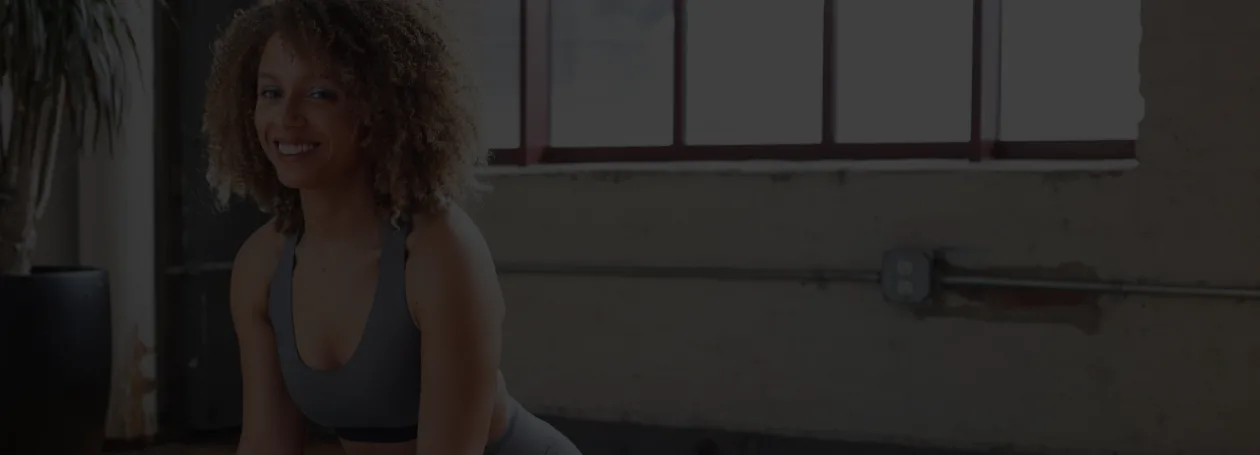
Receive personalized guidance tailored to your unique fitness goals, live with a dedicated coach—no credit card required.